- Home
- Captain W E Johns
Biggles In The Cruise Of The Condor (02) Page 17
Biggles In The Cruise Of The Condor (02) Read online
Page 17
"Well, that must be the answer," rejoined Biggles. "It was a four-engined Douglas I saw, I'm quite sure about that."
"What a bit of luck," went on Algy, spreading some jam over a biscuit. "If the pilot saw us, he'll be certain to come and look for the crash when he finds we haven't arrived anywhere—or he will as soon as the weather clears."
"That puts a different complexion on things," smiled Dickpa. was not so worried about the loss of the machine, which has really served its purpose now, as I was about the possibility of finding we were down in the Yungas country somewhere. That's a terrible place, rotten with fever. So it looks as if all we can do is to wait for morning and see what it brings forth."
CHAPTER XVIII
CONCLUSION
THEY awoke the following morning to find the landscape shrouded in dense white fog. It was cold, too, and Dickpa stamped briskly up and down. "I wish this confounded fog would lift," he said. "We can't do a thing while it lasts; but the sun will soon shift it when it gets a bit higher."
Smyth soon had a brisk fire burning, over which they crouched while they consumed hot coffee and biscuits.
"What is it, Dickpa—are you trying to read the future?" asked Biggles, noticing that his uncle was staring into the fire with a curious expression on his face.
"No-o, I was looking at that stone," replied Dickpa slowly, pointing to a piece of rock that had been used to balance the kettle over the fire.
"Why, what's wrong with it?" inquired Biggles, curiously.
"Nothing's wrong with it," answered Dickpa quickly. "Take a look at it yourself, though. Notice anything?"
The others turned puzzled eyes on the side of the rock nearest the fire at which Dickpa was pointing. Across it ran several uneven, pale grey lines; the effect was not unlike a stone across which a snail had crawled, leaving a thin shining trail. A tiny bead was oozing 'down it.
Dickpa reached out and picked up a piece of rock that lay near by. He balanced it for a moment in the palm of his hand, as if trying to judge its weight, and then, producing a small magnifying-glass from his pocket, he examined it closely. "There's metal in this," he announced.
"What—gold?" cried Algy.
"No, not gold, I'm afraid," answered Dickpa, "but I should say it is silver. Look! You can see traces of it with the naked eye; metal has to exist in fairly large quantities before you can do that. If it is silver, it looks as if we've struck something that might make us well off, if not rich, after all. There must be a vein of it somewhere handy." He walked towards a sharp rise in the ground that loomed darkly in the fog. In one place there had recently been a minor landslide, caused possibly by the action of the recent heavy rains, for a mass of torn and tangled vegetation lay at the foot, exposing the bare face of the hill. "There it is!" he cried instantly, pointing to a broad diagonal line that stood out boldly on the face of the rock. "By Jove, what an amazing coincidence that we should literally crash on to the very place that a prospector might spend his life looking for. Not a word about this to anybody. I'll put a few pieces in my case and get it assayed as soon as we reach civilization," he told the others, who were listening open-mouthed.
"It doesn't look as if we're likely to tell anyone in this place, so I shouldn't worry on that score," observed Biggles, grinning. "Hooray, here comes the sun!" The others joined him in a cheer as the grey fog lifted suddenly, as if it had been drawn up by an invisible hand. It grew lighter rapidly; the mist became a blinding white glare, and then the sun broke through and the moisture-drenched landscape lay before them. They realised instantly and for the first time how lucky they had been in the forced landing. To the east the ground fell away quickly, with the forest increasing in density at the lower altitudes, until at last it stretched in an unbroken jungle to the distant horizon. On the other three sides, steep hills, partly covered with patches of stunted cedar-trees, rose from the narrow shelf on which they had crashed and prevented them from seeing what lay beyond.
"Luck's a funny thing, isn't it?" soliloquized Biggles philosophically. "I've seen a fellow spin into a tree from a thousand feet and get away with a broken nose; and another fellow touches his wheels on a sunken road as he comes in to land, somersaults, and breaks his neck. If we'd come down one minute earlier or later we must have gone nose first into the side of a hill or into the thick forest. We've had some luck on this show, taking it all round
Hello, here she comes!" he went on excitedly, pointing to the sky, whence came the roar of a high-powered aeroplane. "It's the Douglas—looking for us, too, by the way he's circling. Chuck some green stuff on to the fire so that he'll see the smoke." As he spoke he tore up an armful of brushwood and flung it on to the fire; the others did the same, and a tall column of thick white smoke rose like a pillar into the air. As he had prophesied, the pilot of the air-liner saw it almost at once, and, throttling back his engines, dived steeply in their direction. The stranded airmen ran out into the open and waved caps, coats, and anything they could lay hands on.
"Ghr-r-r-r-r-r-r-r-r—" roared the big plane as it swept low over them, and they could see curious faces staring down from the cabin windows.
"All right, stand fast," called Biggles; "he's seen us. I don't know what he'll do, though—
he's not likely to try and land here. Hullo, here he comes again." Once more the Douglas roared past them, at little more than stalling speed this time, and, as it passed, a white object fell like a stone. The plane circled in a steep bank, dipped its wings, and then headed westward.
"What is it?" asked Dickpa of Algy, who had retrieved the message, for they had no doubt as to the nature of the object that had been thrown down to them. Algy snorted. "You'd better read it; I can't," he
said, passing a small piece of paper which had been enclosed in a cigarette-case rolled up in a handkerchief.
"Descanso," read Dickpa. "That means 'rest'—they mean we are to wait where we are, I suppose. It looks as if they are going to send assistance."
"In that case, I'll finish my breakfast," observed Biggles. They had less time to wait than they expected, for in less than two hours a party of men dressed in the blue overalls of mechanics appeared from a ravine in the hills to the west and hurried towards them, shouting, as they came, in a language which Dickpa told the others was Spanish, and to which he replied readily as they arrived on the scene. The newcomers talked volubly as they examined the wrecked Condor with the greatest interest, shaking their heads and gesticulating wildly. Biggles, unable to understand a word of what was being said, sat on a rock and watched the performance with bored impatience.
"Hi, what is it all about, Dickpa?" he called at length. "Don't keep all the news to yourself."
-"We were luckier than we knew," Dickpa told him. "We have crashed quite close to Cochabamba, right on the direct air route between Santa Cruz and Cochabamba. In fact, they say we actually flew right over Santa Cruz aerodrome yesterday afternoon and they sent a machine up to see who the dickens it was."
"That must have been the machine that I saw," declared Biggles.
"It was. The pilot saw you disappear into the fog and thought that was the end of you. He went back to Santa Cruz then—or, rather, they called him back by directional wireless. He had to fly some passengers and mails to Cochabamba this morning, so he kept a lookout for us, and, as you know, he spotted us. He reported our position by wireless to Cochabamba, and the traffic manager sent out this party to see what could be done."
"Then we shall have to walk to Cockadoodle, or whatever you call the place?" said Biggles.
"Cochabamba."
"That's it. We'll make loads of the most important stuff, but I suppose we shall have to leave the rest behind. I'm taking my gold tomahawk, anyway. What about the machine?"
"I've spoken to them about that. The chief mechanic says they can dismantle it and take it back in pieces to their workshops, where he thinks it could be repaired. Alternatively, they'll ship the pieces back to England if we want them to."
"I would su
ggest leaving it for them to repair," returned Biggles, thinking deeply. "If they can put her in order again and can find room for her in a hangar, well, she would be on the spot ready for us if we came back at any time. If we didn't, then you could probably sell her; she's bound to be worth something, as there is nothing wrong with the engines."
"Come back again, did you say?" cried Dickpa. "Haven't you had enough thrills yet?" Biggles grinned sheepishly. "Enough for a bit," he confessed, "but it just struck me that if we got bored at any time we might fly back and see if the eruption left anything of Ata
"Shh!" warned Dickpa. "One of them might understand English and I haven't told them the real object of our quest, naturally. We had better forget about that for the time being. All right, then; I'll tell them to take the pieces to Cochabamba as soon as they can. They are going back now to report, so we had better go with them, and then we'll go on to La Paz. We might as well fly—that will be the quickest way—but I shall have to charter a special machine, because there isn't a regular service. It isn't far—about a hundred and thirty miles or so, I believe. We'll make up loads of all the stuff we want to take; these fellows have nothing to carry, so they'll help us."
The baggage was quickly collected from the cabin of the wrecked machine, the gold ornaments which represented the fruits of the expedition being kept together in a special bag, which was entrusted to Smyth. As they examined these, they found them to be more numerous than they thought, and Dickpa pronounced himself to be more than satisfied with the result. In addition to Biggles's tomahawk, with its huge emerald, which alone was worth an enormous sum, there was an exquisitely carved peacock with jewelled eyes, and a condor, both of which were of fine gold and weighed several pounds. Algy and Smyth had put a few ornaments in their haversacks before leaving the treasurechamber, and these included, on Algy's part, two small gold llamas, a priest holding a rod with a good-sized ruby in the end, a sheaf of corn, and three other small ornaments of no particular form but of beautiful workmanship.
Smyth's bag revealed a pair of long, jewelled earrings, an effigy of a warrior with sword raised, a chain, or necklace of gold filigree work, with pearls, five small animals and birds, and a fine goblet. The latter had been badly dented in the crash, but not beyond a good goldsmith's ability to repair.
As Dickpa pointed out as they trudged along behind the Bolivians, he was not really very interested in the intrinsic value of what they had found. Each piece was of untold wealth from a historical point of view, and the quipus he had taken alone compensated him for the trouble and expense of the quest. Indeed, he declared himself ready to make another trip at any time for even less results.
A walk of two hours brought them to the aerodrome at Cochabamba, where, after giving an account of their adventure, or as much of it as they deemed wise, and making final arrangements for the salvage and storing of the Condor, they embarked in a specially chartered machine for La Paz, the capital of Bolivia.
Through the cabin windows they saw, not without a tinge of regret, the passing of the forest in which they had had so many stirring adventures.
A few formalities had to be arranged with the authorities, and here Dickpa's knowledge and experience of the country stood them in good stead. A mining concession was taken out in respect of the vein of silver they had discovered and the matter left in the hands of a reliable agent until such time as the quality of the ore could be determined. A week later they sailed from the port of Mollenda, homeward bound, and as they leaned against the rail watching the towering peaks of the Andes drop astern a queer smile spread over Dickpa's face.
"Well, boys," he said slowly, "what do you think of South America now?"
"As a cure for boredom it should take first prize, and I've a feeling in my bones that I shall see it again," observed Biggles quietly.
"Me too," declared Algy.
"Then you'll need a mechanic, sir," murmured Smyth softly.
Document Outline
06 pic
01 plain Page 1
Page 2
Page 3
Page 4
Page 5
Page 6
Page 7
Page 8
Page 9
Page 10
Page 11
Page 12
Page 13
Page 14
Page 15
Page 16
Page 17
Page 18
Page 19
Page 20
Page 21
Page 22
Page 23
Page 24
Page 25
Page 26
Page 27
Page 28
Page 29
Page 30
Page 31
Page 32
Page 33
Page 34
Page 35
Page 36
Page 37
Page 38
Page 39
Page 40
Page 41
Page 42
Page 43
02 plain Page 1
Page 2
Page 3
Page 4
Page 5
Page 6
Page 7
Page 8
Page 9
Page 10
Page 11
Page 12
Page 13
Page 14
Page 15
Page 16
Page 17
Page 18
Page 19
Page 20
Page 21
Page 22
Page 23
Page 24
Page 25
Page 26
Page 27
Page 28
Page 29
Page 30
Page 31
Page 32
Page 33
Page 34
Page 35
Page 36
Page 37
Page 38
Page 39
Page 40
03 plain Page 1
Page 2
Page 3
Page 4
Page 5
Page 6
Page 7
Page 8
Page 9
Page 10
Page 11
Page 12
Page 13
Page 14
Page 15
Page 16
Page 17
Page 18
Page 19
Page 20
Page 21
Page 22
Page 23
Page 24
Page 25
Page 26
Page 27
Page 28
Page 29
Page 30
Page 31
Page 32
Page 33
Page 34
Page 35
Page 36
Page 37
Page 38
Page 39
Page 40
Page 41
Page 42
Page 43
Page 44
04 plain Page 1
Page 2
Page 3
Page 4
Page 5
Page 6
Page 7
Page 8
Page 9
Page 10
Page 11
Page 12
Page 13
Page 14
Page 15
Page 16
Page 17
Page 18
Page 19
Page 20
Page 21
Page 22
Page 23
Page 24
Page 25
Page 26
Page 27
Page 28
Page 29
Page 30
Page 31
Page 32
Page 33
Page 34
Page 35
Page 36
Page 37
Page 38
Page 39
Page 40
&nbs
p; Page 41
Page 42
Page 43
Page 44
Page 45
Page 46
Page 47
Page 48
Page 49
Page 50
Page 51

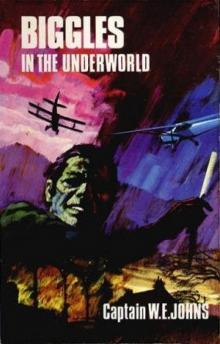 Biggles in the Underworld
Biggles in the Underworld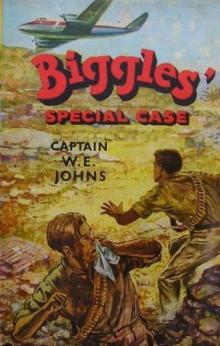 Biggles' Special Case
Biggles' Special Case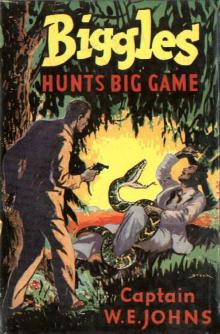 34 Biggles Hunts Big Game
34 Biggles Hunts Big Game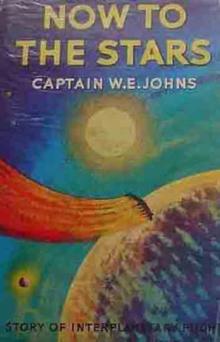 03 Now To The Stars
03 Now To The Stars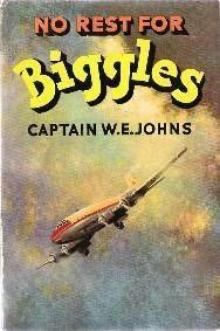 55 No Rest For Biggles
55 No Rest For Biggles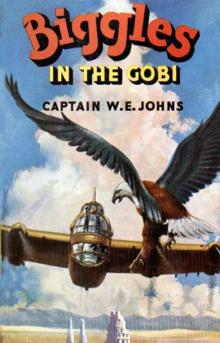 46 Biggles in the Gobi
46 Biggles in the Gobi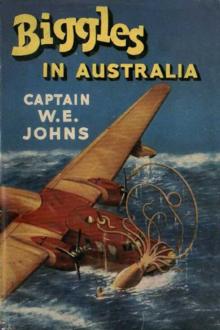 52 Biggles In Australia
52 Biggles In Australia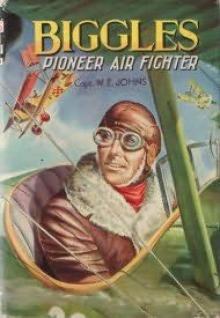 51 Biggles Pioneer Air Fighter
51 Biggles Pioneer Air Fighter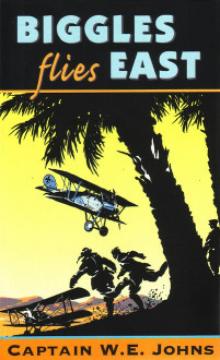 05 Biggles Flies East
05 Biggles Flies East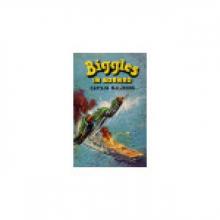 28 Biggles In Borneo
28 Biggles In Borneo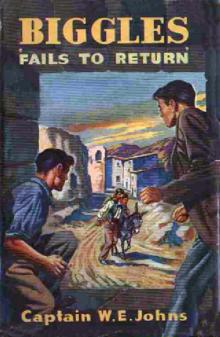 29 Biggles Fails to Return
29 Biggles Fails to Return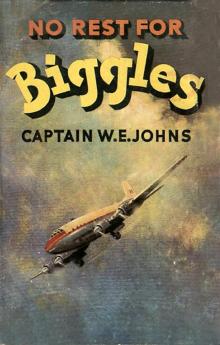 55 No Rest For Biggles (v2)
55 No Rest For Biggles (v2)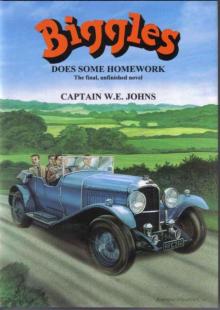 Biggles Does Some Homework
Biggles Does Some Homework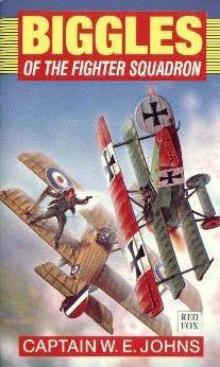 Biggles of the Camel Squadron
Biggles of the Camel Squadron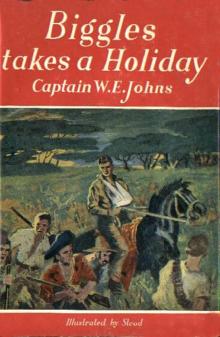 35 Biggles Takes A Holiday
35 Biggles Takes A Holiday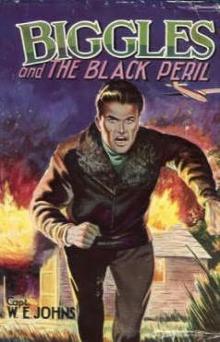 Biggles And The Black Peril (06)
Biggles And The Black Peril (06)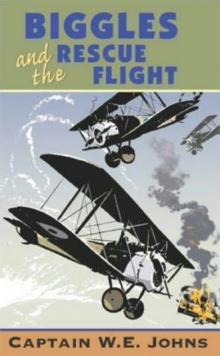 17 Biggles And The Rescue Flight
17 Biggles And The Rescue Flight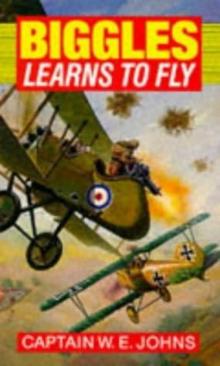 Biggles Learns To Fly
Biggles Learns To Fly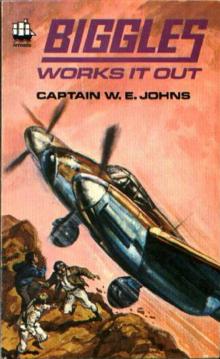 40 Biggles Works It Out
40 Biggles Works It Out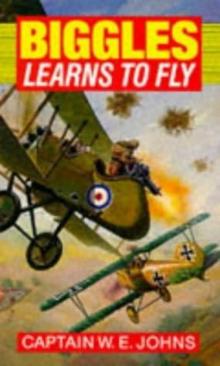 05 Biggles Learns To Fly
05 Biggles Learns To Fly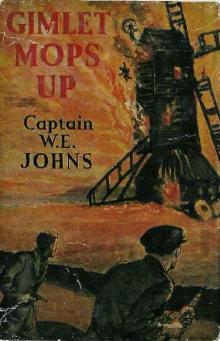 04 Gimlet Mops Up
04 Gimlet Mops Up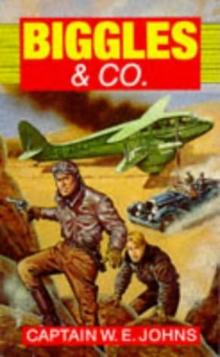 10 Biggles and Co
10 Biggles and Co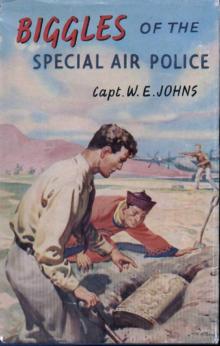 47 Biggles Of The Special Air Police
47 Biggles Of The Special Air Police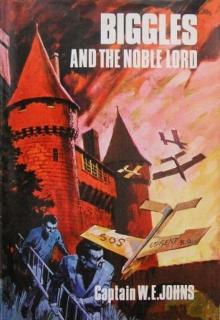 Biggles and the Noble Lord
Biggles and the Noble Lord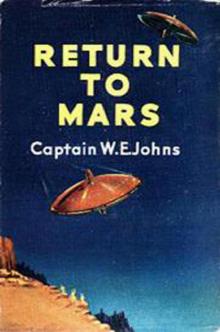 T2 Return To Mars
T2 Return To Mars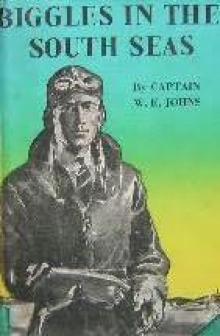 21 Biggles In the South Seas
21 Biggles In the South Seas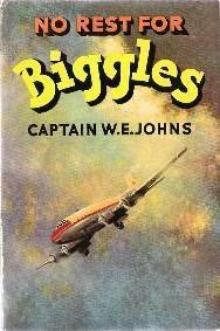 No Rest For Biggles
No Rest For Biggles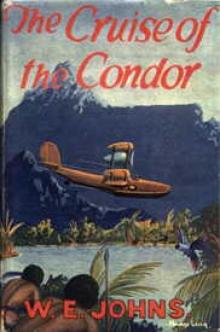 Biggles In The Cruise Of The Condor (02)
Biggles In The Cruise Of The Condor (02)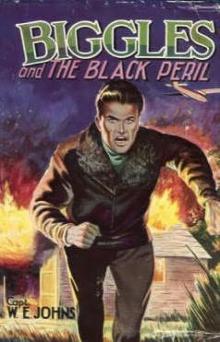 06 Biggles And The Black Peril
06 Biggles And The Black Peril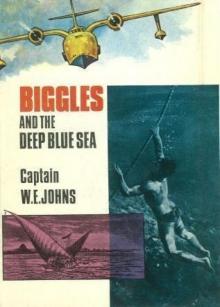 Biggles and the Deep Blue Sea
Biggles and the Deep Blue Sea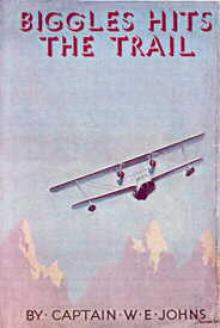 06 Biggles Hits The Trail
06 Biggles Hits The Trail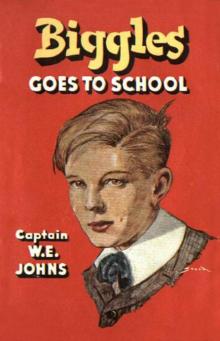 39 Biggles Goes To School
39 Biggles Goes To School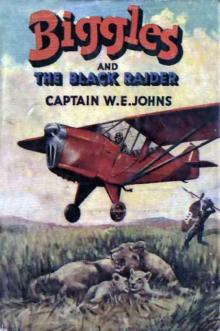 44 Biggles and the Black Raider
44 Biggles and the Black Raider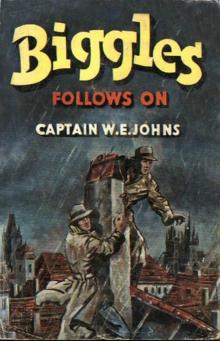 42 Biggles Follows On
42 Biggles Follows On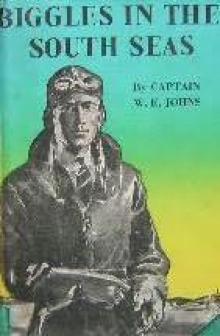 Biggles In the South Seas
Biggles In the South Seas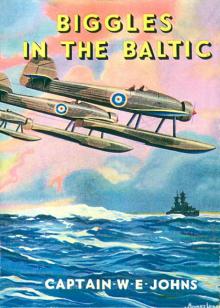 21 Biggles In The Baltic v3
21 Biggles In The Baltic v3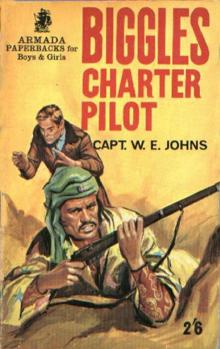 27 Biggles - Charter Pilot
27 Biggles - Charter Pilot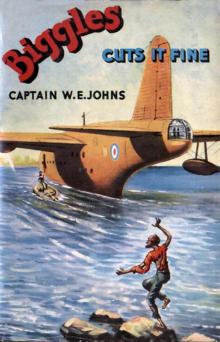 49 Biggles Cuts It Fine
49 Biggles Cuts It Fine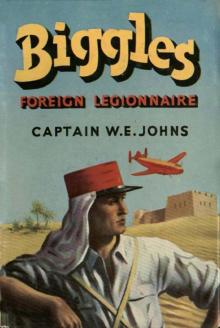 51 Biggles Foreign Legionaire
51 Biggles Foreign Legionaire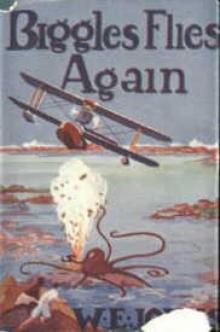 04 Biggles Flies Again
04 Biggles Flies Again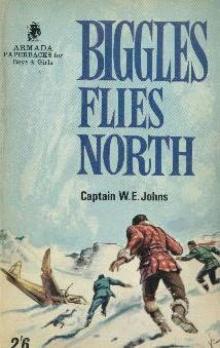 16 Biggles Flies North
16 Biggles Flies North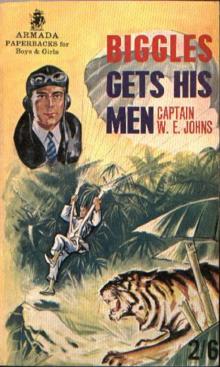 37 Biggles Gets His Men
37 Biggles Gets His Men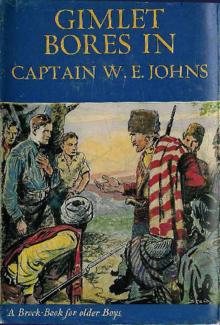 07 Gimlet Bores In
07 Gimlet Bores In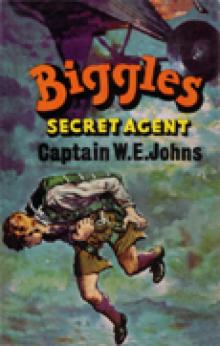 19 Biggles Secret Agent
19 Biggles Secret Agent 32 Biggles In The Orient
32 Biggles In The Orient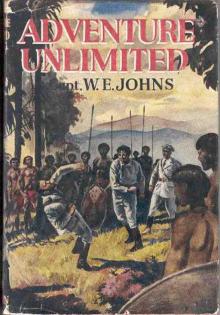 Adventure Unlimited
Adventure Unlimited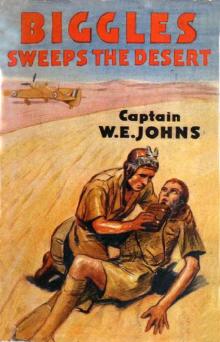 26 Biggles Sweeps The Desert
26 Biggles Sweeps The Desert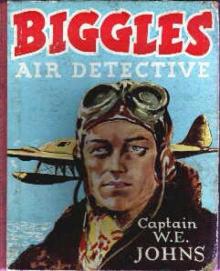 Biggles Air Detective (43)
Biggles Air Detective (43) 36 Biggles Breaks The Silence
36 Biggles Breaks The Silence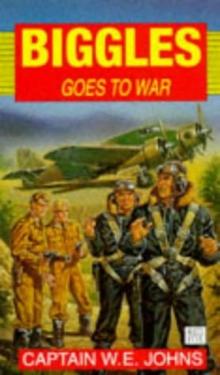 14 Biggles Goes To War
14 Biggles Goes To War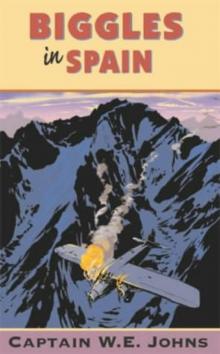 18 Biggles In Spain
18 Biggles In Spain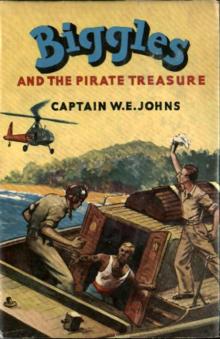 50 Biggles and the Pirate Treasure
50 Biggles and the Pirate Treasure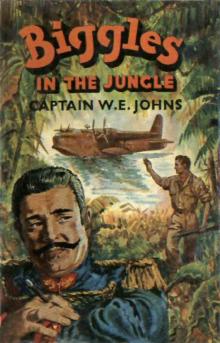 25 Biggles In The Jungle
25 Biggles In The Jungle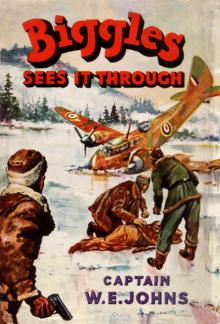 23 Biggles Sees It Through
23 Biggles Sees It Through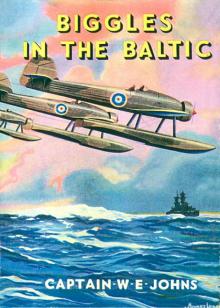 21 Biggles In The Baltic
21 Biggles In The Baltic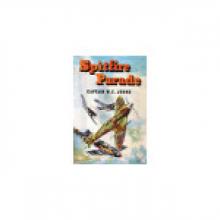 24 Spitfire Parade
24 Spitfire Parade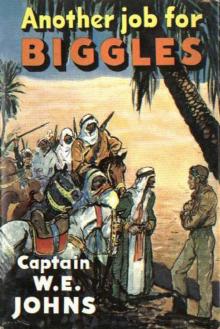 38 Another Job For Biggles
38 Another Job For Biggles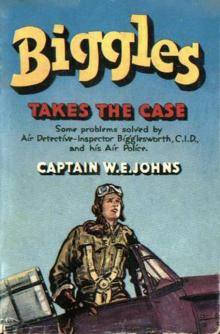 41 Biggles Takes The Case
41 Biggles Takes The Case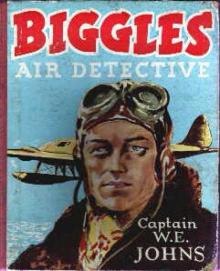 43 Biggles Air Detective
43 Biggles Air Detective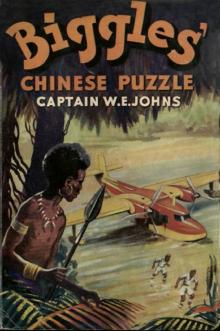 53 Biggles Chinese Puzzle
53 Biggles Chinese Puzzle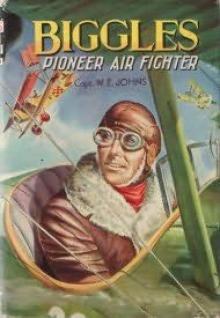 Biggles Pioneer Air Fighter (51)
Biggles Pioneer Air Fighter (51)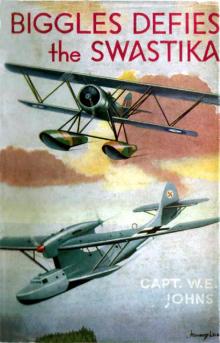 22 Biggles Defies The Swastika
22 Biggles Defies The Swastika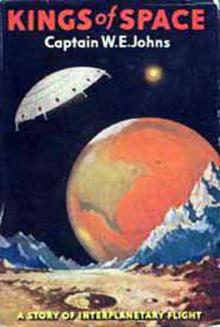 01 Kings Of Space
01 Kings Of Space